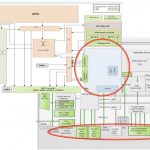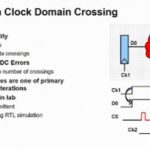Machine learning (ML) is the hot new technology of our time so EDA development teams are eagerly searching for new ways to optimize various facets of design using ML to distill wisdom from the mountains of data generated in previous designs. Pre-ML, we had little interest in historical data and would mostly look only at localized… Read More
Tag: fpga
HW and SW Co-verification for Xilinx Zynq SoC FPGAs
It constantly amazes me at how much FGPA companies like Xilinx have done to bring ARM-based CPUs into a programmable SoC along with FPGA glue logic. Xilinx offers the Zynq 7000 and Zynq UltraScale+ SoCs to systems designers as a way to quickly get their ideas into the marketplace. A side effect of all this programability and flexibility… Read More
The FPGA Business Just Got Interesting Again!
FPGA’s have played an important role in the fabless semiconductor ecosystem which is why it has a full chapter in our book Fabless: The Transformation of the Semiconductor Industry. Along my career path I spent time at a start-up FPGA so I know how hard it is. I worked for GateField which was then acquired by FPGA pioneer Actel… Read More
Embedded FPGA IP update — 2nd generation architecture, TSMC 16FFC, and a growing customer base
Regular Semiwiki readers are aware that embedded FPGA (eFPGA) IP development is a rapidly growing (and evolving) technical area. The applications for customizable and upgradeable logic in the field are many and diverse — as a result, improved performance, greater configurable logic capacity/density, and comprehensive… Read More
CEO Interview: Stanley Hyduke, founder and CEO of Aldec
Dr. Stanley Hyduke, founder and CEO of Aldec talks about how keeping pace with the evolution of FPGAs and listening to customers underpin the company’s success.… Read More
CDC Verification for FPGA – Beyond the Basics
FPGAs have become a lot more capable and a lot more powerful, more closely resembling SoCs than the glue-logic we once considered them to be. Look at any big FPGA – a Xilinx Zynq, an Intel/Altera Arria or a Microsemi SmartFusion; these devices are full-blown SoCs, functionally different from an ASIC SoC only in that some of the device… Read More
High Frequency Trading and EDA
Pop quiz – name an event at which an EDA vendor would be unlikely to exhibit. How about The Trading Show in Chicago, later this month? That’s trading as in markets, high-frequency trading, blockchain and all that other trading-centric financial technology. This is another market, like cloud, where performance is everything and… Read More
CEO Interview: Vincent Markus of Menta
What is Menta all about?
Menta was founded to add hardware-programmability within SoCs. We deliver FPGAs in hard IP form that can be readily embedded within an SoC to make certain hardware functions reconfigurable at-will, post-production. This enables customers to dynamically adapt to evolving standards, perform security… Read More
CEO Interview: Sanjay Keswani of Consensia
Sanjay Keswani founded Consensia in 2013. He has deep experience in the high-tech industry, guiding some of the world’s high profile technology brands through complex innovation and business transformation projects including companies such as Atmel, KLA-Tencor, Hughes Aircraft, and Motorola Mobility. Consensia customers… Read More
Seven Reasons to Use FPGA Prototyping for ASIC Designs
Using an FPGA to prototype your next hardware design is a familiar concept, extending all the way back to the time that the first FPGAs were being produced by Xilinx and Altera. There are multiple competitors in the marketplace for FPGA prototyping, so I wanted to discern more about what the German-based company PRO DESIGN had to … Read More






